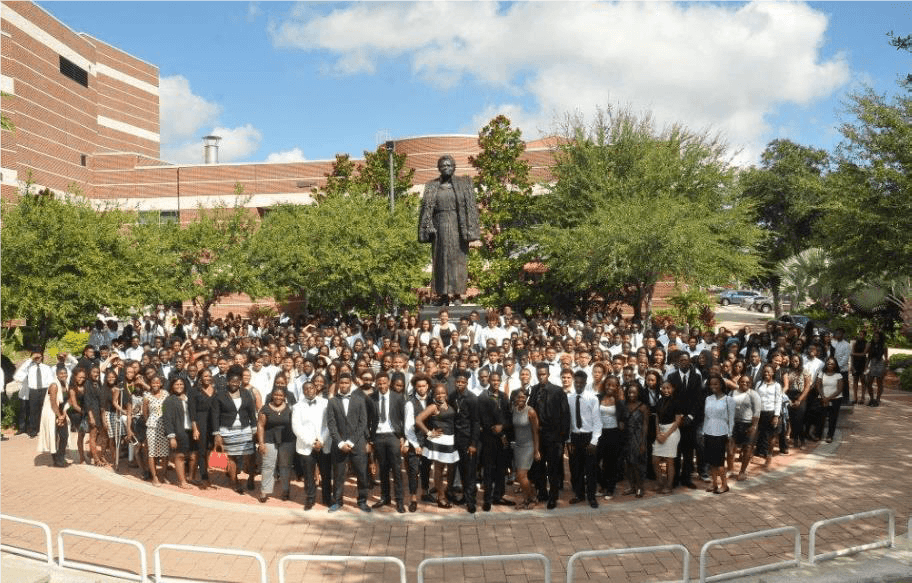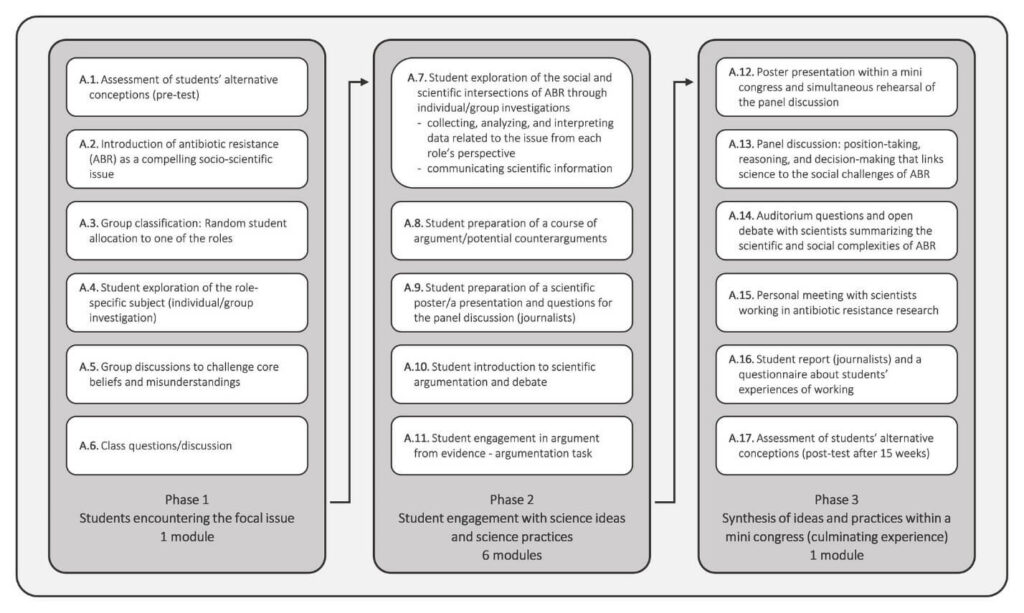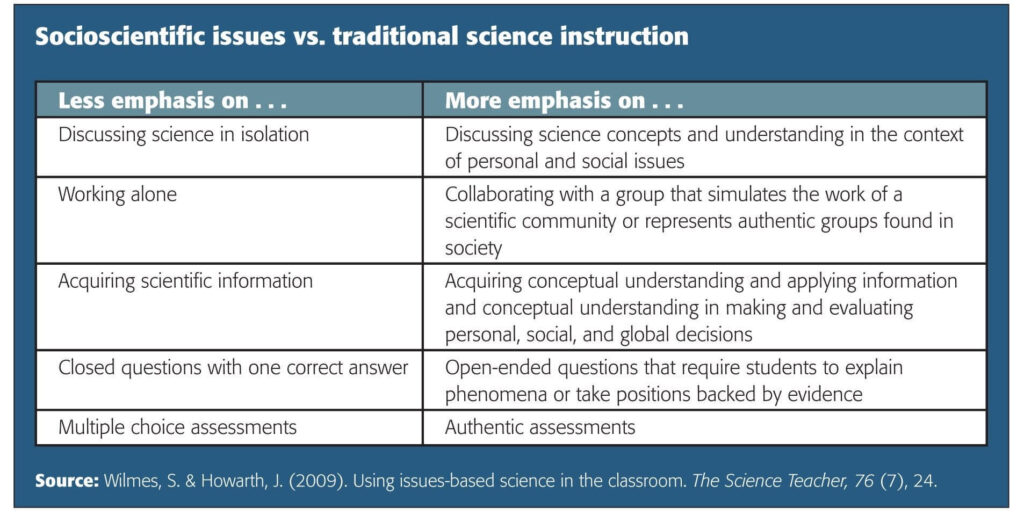To examine the effects of socioscientific argumentation learning and development on student success in STEM, one could propose a structure of intervention around content knowledge, such as units of biology or environmental science courses focusing on socioscientific issues. Societal challenges can be classified as socio-scientific issues (SSI). According to Zeidler & Keefer (2003), socioscientific issues (SSI) are controversial social issues related to science. They must be more structured, open-ended problems with multiple solutions (Sadler, 2004). SSIs are utilized in science education to promote scientific literacy, emphasizing the ability to apply scientific and moral reasoning to real-world situations. Some examples of SSI include issues such as genetic engineering, climate change, animal testing for medical purposes, oil drilling in national parks, and “fat taxes” on “unhealthy” foods, among many others. Research studies have shown SSI to increase students’ understanding of science in various contexts effectively, argumentation skills, empathy, and moral reasoning (Sadler & Zeidler, 2005; Zeidler & Sadler, 2008).
The National Science Education Standards state that inquiry should be viewed as a process of both “explanation and argument” and “exploration and experiment” and suggest that students need more opportunities to engage in scientific argumentation (NRC, 1996, p. 113). For this to occur, the focus and nature of classroom instruction must shift from time to time: Science teachers need to focus more on how we know science (i.e., how new knowledge is generated and validated) and not just on what we know about the world and how it works (i.e., laws, theories, and unifying concepts). According to Sampson & Grooms (2010), to accomplish this goal, science teachers need activities that require students to discuss and critique the process, products, or context of an inquiry, help students develop the abilities needed to participate in these activities and allow students to learn more about the nature of scientific argumentation. Sampson and Grooms (2010) further argue that this type of lesson can be complex for a teacher to design and implement without a model to help guide instructional decisions.

In this research project, we investigated the current argumentation level of STEM students and conducted a comprehensive analysis of the data to identify gaps in effective socioscientific argument development (Phase I). In Phase II, we intend to develop and adopt a socioscientific argumentation learning training system for students. Finally, in Phase III, we conducted an experimental study to investigate the effect of socioscientific argumentation training on student outcomes.

The research project aimed to determine if improving scientific argumentation improved student academic performance in STEM-related activities at a Historically Black College and University (HBCU) in east central Florida. A quasi-experimental design was used to answer three research questions: (1) What are the socioscientific argumentation strategies of STEM students? Using socioscientific issues at the nexus of food, energy, and water, questionnaires, written reports, and debates (interactive arguments) were used to collect data on STEM students. (2) What gaps in effective socioscientific argumentation development exist for STEM students? Several rubrics, questionnaires, and models relevant to socioscientific argumentation will be used to analyze the data collected in Phase I of the project. We will combine input from STEM faculty and the results of a systematic literature review to determine the optimal research approach and instructional strategies for socioscientific argumentation education at HBCUs in curricular and extra-curricular settings. Moreover, finally, (3) does socioscientific argumentation instruction enhance B-CU students’ academic performance? In other words, can the effective use of socioscientific argumentation strategies change academic success outcomes? The study proposes to conduct a pre-post comparison of the quality of arguments on socioscientific issues between intervention and comparison groups. Appropriate measures for student academic success will be assessed from academic achievement, career success, attainment of learning outcomes, persistence, acquisition of skills and competencies, and satisfaction.

Knowledge is limited on how STEM students at Historically Black Colleges and Universities (HBCUs) use socioscientific argumentation strategies in STEM courses or develop the expertise to do so. This research project will contribute knowledge to better understand socioscientific argumentation in the context of HBCUs with broader implications for students from populations underrepresented in STEM. This line of research suggests that when students engage in learning tasks involving SSI, they can develop many skills necessary for scientific argumentation: evaluation of evidence, construction of arguments, and evaluation of competing arguments. SSI-based instruction can also enhance students’ content knowledge. This research project produced information needed to develop intervention models for improving the scientific argumentation development of students in STEM. At B-CU, our science educators do not use this approach inside the classroom, potentially because of the time required to complete such activities or perhaps based on the misconception that SSI curricula lack an emphasis on science content.
